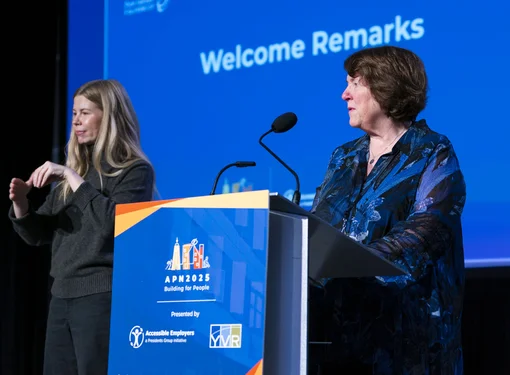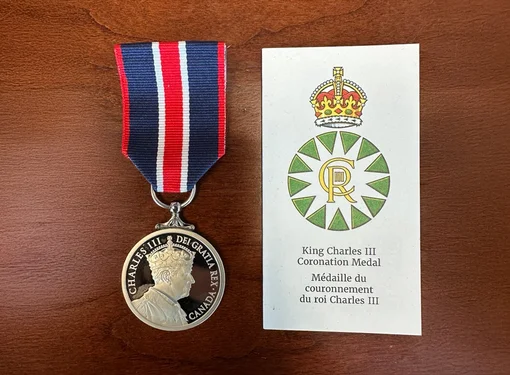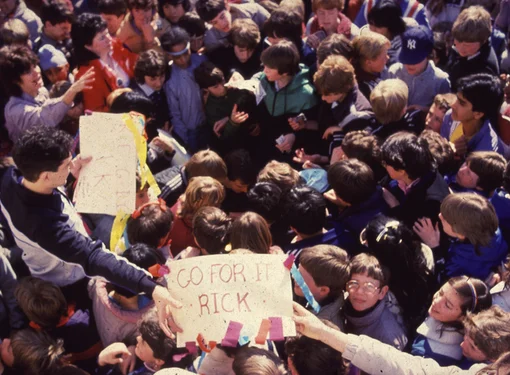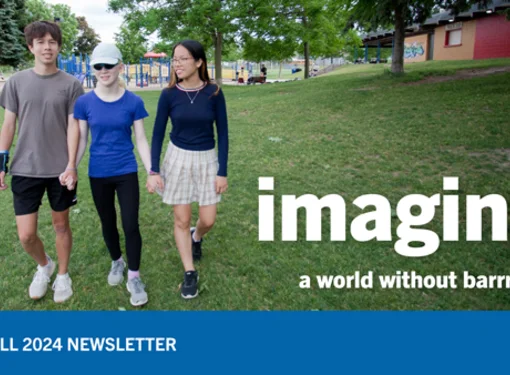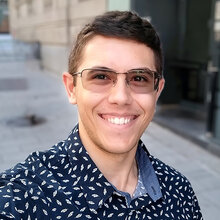We are "dateable": A discussion on dating, intimacy and disability
As people with obvious physical disabilities, we grew up rarely seeing ourselves represented accurately in pop culture. We didn't have any real role models or even peers we could talk to about our experience of disability. In adolescence, the absence of someone to look up to, or talk with, about intimacy, dating, and sexuality was more glaring. We both started asking ourselves, how much of this lived experience is really accessible to us?
We’ve also asked: What does this look like for those who are not disabled; who may have very little interaction with people with disabilities in their lives; who may have been misinformed, hold stereotypes, or are anxious and afraid of approaching the subject; or even those who have an aversion to disability. And how can we start a conversation to change this?
Andrew’s experience
"I’m a wheelchair user with Cerebral Palsy. I also identify as a queer man. People mainly assume I don’t want intimacy at all. I was giving a lecture once and a participant stopped me to suggest I must not be emotionally invested in intimate relationships. I was stunned, because this couldn’t have been further from the truth.
When I’m intimate with another person, I’m always asking, “Do they like me? Will they come back?” These questions are bubbling beneath my surface, and I do my best to hide these feelings. In these situations, it’s always me, these emotions, and my disability.
For once, I’d love to be the one who is “wanted” - pursued, flirted with. I’d like to experience what it feels like to be the object of someone else’s desire.
Sometimes though, I do just want the freedom of intimacy without attachments, and that can be frustrating, because some people assume that given my disability, I must want and need more. Either way, dating and intimacy are different thanks to my disability, but I love exploring what that means."
Stella’s experience
"I’ve always wanted to find love and someone to share my life with. But growing up with Spinal Muscular Atrophy, my absence and invisibility in pop culture and conventional narratives of romance and relationships became quite apparent. You start to wonder: Will anyone ever be able to accept me, disability and all? Can anyone ever find a disabled body "sexy"? Will I ever be desired, or even loved?
I wasn’t the girl who guys wanted to date. I was just a chick in a wheelchair. Most men assume I’m asexual, “desperate”, needy, or too vulnerable to consent to sexual activity. For some, being intimate with a woman with a disability just seems to be a box to check on their bucket list.
In my 20s, I took the time to get to know myself. I pursued men online because finding people to experiment with intimately was less of a challenge for me. When you have limited mobility and all aspects of your personal care are intrinsically tied to the hands of your caregiver, finding a way to learn about your own body seems impossible.
I almost made it my mission to defy my disability by finding ways to learn as much about physical intimacy as I could. No one really wanted to date me for longer than three months – apparently this is the threshold for realizing it was “too much” to date a girl in a wheelchair.
Now I’m in my 30s, and although I’ve had some long-term relationships, finding a lasting connection seems elusive. But with every new interaction I’m endlessly proving my value as a potential lover and partner, to overshadow all of the negatives surrounding disability."
We are "dateable"
It was because of our need and desire to see ourselves represented and recognized as "date-able" that we were inspired us to start the Deliciously Disabled movement. As consultants, we do a range of advocacy work from basic access rights, to accommodations in the workplace and at school. But one of our biggest achievements has been opening up a discussion around what dating and intimacy looks like and feels like to someone with a disability.
We encourage everyone with a disability, who has been affected in any way by disability, or who simply wants to learn more about disability, to join us to discuss the issues around intimacy and disability, and their own experiences, without judgment.
About Andrew and Stella: Andrew Gurza and Stella Palikarova are the Co-Founders of Deliciously Disabled Consulting, a company, brand and movement that seeks to create and promote frank discussion about the lived experience of disability. They provide education, consulting, event-planning and other programming including: intimacy and sexuality, attendant care, academics and career-planning, physical and social accessibility.


